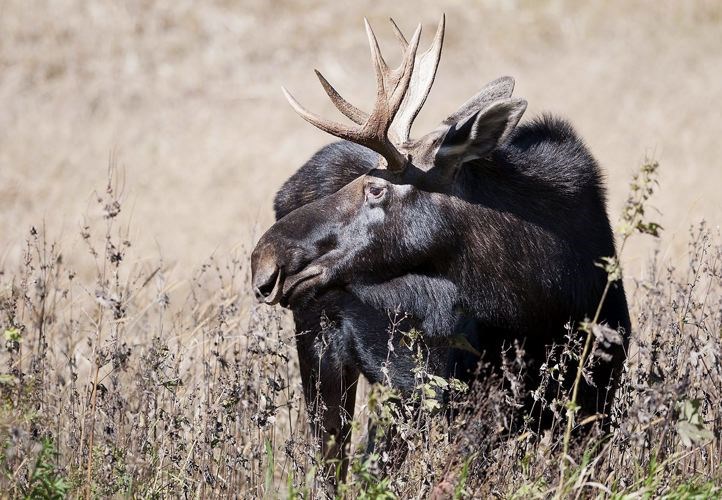The spraying of herbicide in forested areas is being blamed for the high rate of death by starvation for moose in the Prince George area.
According to a 2017 study conducted on behalf of the Ministry of Forests, Lands and Natural Resource Operations, starvation was the cause for four of the 10 collared cow moose that died in the Prince George South study area.
James Steidle of Stop the Spray B.C. contends the study area is the most heavily sprayed in the province and the animals are being denied a key source of food as herbicide is used to eliminate deciduous trees like aspen, birch, and willow to create more room for spruce, pine and fir.
"If starvation is a major cause of moose mortality, and we actively eliminate moose food from our forests, it follows that a change in reforestation policy and allowing more aspen, birch and cottonwood in our forests would be helpful to moose survival," Steidle said in a press release.
In a response, MFLRNO confirmed the number, but added tests are pending.
It also said the project has found no significant differences in the decline of the moose population around Prince George compared to other places in the Central Interior.
Survival rates of collared cow moose are high, ranging from 86 to 95 per cent, MFLRNO added.
"In addition, it's important to note that the diet of moose isn't limited to deciduous forest," MFLRNO said and added preliminary results from a University of Northern British Columbia-based study provides insight into the many habitat factors that moose choose for food.
"Food selection by cow moose within their seasonal home ranges appears to differ by study area and season. Cow moose in high intensity clear-cut areas avoid new cuts only during the summer, and select mature conifer cover in all seasons except early winter.
"On the least clear-cut landscape, new cuts were avoided in all seasons, roads were avoided in the fall, early and late winter, and moose were located closer to the edge of nature forest than were random locations in all seasons. Deciduous cover was selected across all seasons and study areas."
Steidle will be hosting a presentation in support of his position on Wednesday at UNBC in room 7-152 starting at 6:30 p.m. The talk is called "Starving Moose, Burning Forests, and Contaminated Blueberries; a case for broadleaves and a new paradigm in vegetation management in Central British Columbia."
To find full MFLRNO report, search 2017 Moose Research Progress Report online.


